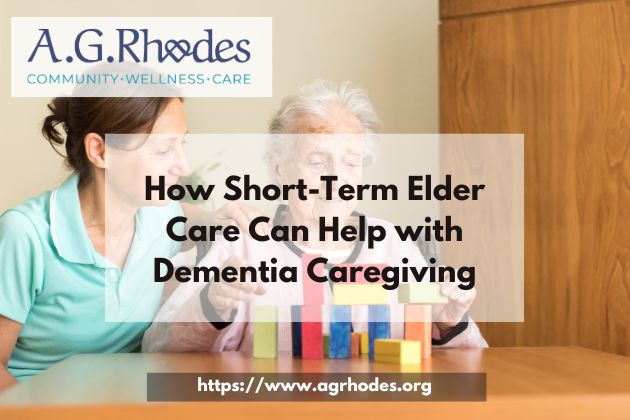
Dementia caregiving is a challenging task that requires patience, compassion, and specialized care. Caring for someone with dementia can be physically and emotionally exhausting for family members. That’s where short-term senior care comes in as a valuable resource. In this article, we will explore how short-term elder care can provide essential support and respite for dementia caregivers, alleviating some of the burden and improving the overall well-being of both the caregiver and the person with dementia.
Understanding Dementia Caregiving Challenges
Dementia is a progressive condition that affects memory, cognitive abilities, and behavior. Caregivers of individuals with dementia often face various challenges, including:
Physical and Emotional Strain
Dementia caregiving can be physically demanding, requiring assistance with daily activities, personal hygiene, and mobility. It also takes an emotional toll, as caregivers witness their loved ones’ decline and may experience feelings of grief, frustration, and helplessness.
Time Commitment
Caring for someone with dementia is a full-time responsibility. Family caregivers may find it challenging to balance caregiving duties with their personal and professional lives, leading to exhaustion and burnout.
Lack of Support
Many dementia caregivers feel isolated and unsupported. They may lack the necessary knowledge and resources to provide the best care possible, leading to increased stress and anxiety.
The Role of Short-Term Elder Care
Short-term elder care offers a range of services designed to support both the caregiver and the individual with dementia. Let’s explore some of the ways short-term elder care can help:
1. Respite Care
Respite care provides temporary relief for family caregivers by offering short-term care solutions. It allows caregivers to take breaks, attend to their own needs, and recharge. During respite care, trained professionals provide personalized care, ensuring the safety and well-being of the person with dementia. This temporary separation can be beneficial for both parties, as it reduces stress and fosters a sense of rejuvenation.
2. Specialized Care Services
Short-term elder care facilities often specialize in dementia care. They have trained staff members who understand the unique challenges associated with the condition. These professionals can provide specialized care, including assistance with activities of daily living, medication management, and engaging cognitive activities tailored to the individual’s needs.
3. Social Engagement and Stimulation
Isolation is a common problem for individuals with dementia and their caregivers. Short-term elder care facilities offer opportunities for socialization and engagement. They organize group activities, outings, and programs specifically designed to promote cognitive stimulation and enhance the overall quality of life for individuals with dementia.
4. Expert Support and Guidance
Short-term elder care facilities employ professionals who have extensive knowledge and experience in dementia care. They can provide guidance and support to family caregivers, share strategies for managing challenging behaviors, offer education about the progression of dementia, and provide emotional support during difficult times. This expert assistance can empower caregivers and enhance their ability to provide effective care.
Conclusion
Short-term elder care is a valuable resource for dementia caregivers. It provides much-needed support, respite, and specialized care for both the caregiver and the person with dementia. By utilizing short-term elder care services, caregivers can find relief from the physical and emotional strain of caregiving, gain access to expert guidance, and ensure their loved ones receive the best possible care. The availability of these services allows caregivers to maintain their well-being while providing a higher quality of life for individuals with dementia.

